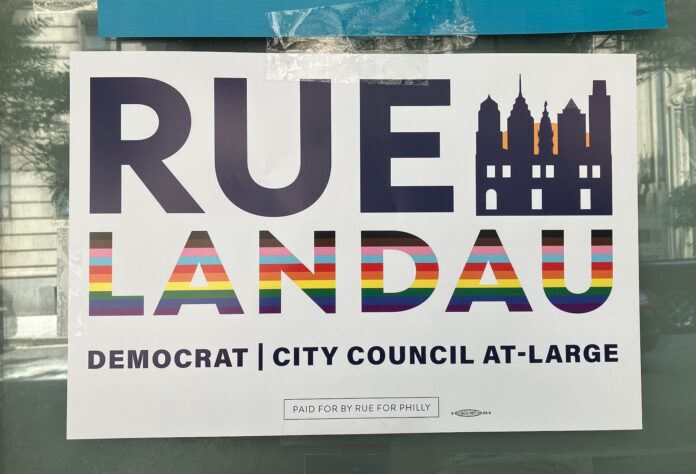
Representation matters.
It’s one of those phrases that is deceptively simple yet also simplistic. Whose representation matters, and who chooses it? It’s a question I have been writing about since college. For those of us in historically marginalized communities — women, people of color, LGBTQ people, working-poor people, disabled people — access to seats at the table of power have long been limited, if not wholly restricted. Yet when we talk about “seats at the table,” the presumption is someone else has ownership of that table and they get to determine who sits at it. We are there at their largesse.
Legendary New York Congresswoman and presidential candidate Shirley Chisholm said, “If they don’t give you a seat at the table, bring a folding chair.”
Black lesbian writer and theorist Roxane Gay said, “A seat at the table means you are part of a conversation.”
When I was covering the results of the Philadelphia election and posting them to my Twitter account as each new batch came in, it was slow dawning that chairs were being pulled up to the table of power that had never been there before. Not only would a woman become the city’s 100th mayor, but City Council would get its first out LGBTQ member.
On Election night, LGBTQ people got a seat at the table of Philadelphia power for the first time when Rue Landau, an out lesbian, won a coveted and hotly contested place among the five City Council at Large seats. Landau came in third after two incumbents with 9% of the vote.
Landau’s win means, as Roxane Gay says so succinctly, LGBTQ people will be part of the conversation. Directly. Not via an ally who may forget us if it’s inconvenient or simply because LGBTQ people are not top of mind for a cisgender straight person.
Now, a member of our community who knows what it is to fight for everything from HIV/AIDS services as a member of ACT UP to getting a marriage license for herself and wife Kerry a year before Obergefell will be seated in City Council fighting for us. Landau has fought for so many causes in her years as an activist, a Community Legal Services attorney and an advocate for vulnerable groups.
Landau was not the first LGBTQ person to run for City Council. In 2019 activist Déja Lynn Alvarez ran as the first openly trans person. And in what was no doubt a bittersweet irony for her, Sherrie Cohen, also an out lesbian, ranked ninth among the 27 Democratic candidates. Cohen has run for City Council many times, most recently in 2019, and was the first out LGBTQ person to do so in Philadelphia and the first to receive the endorsement of the Democratic City Committee. Cohen ran for Philadelphia City Council three times in the past decade, but withdrew her bid in 2019.
In 2023, the name of John C. Anderson is ensconced on the affordable housing units for LGBTQ seniors in the Gayborhood, but 40 years ago, when Anderson was a rising star on City Council, his gayness was a secret to all but a few. When he died of AIDS at 41 in 1983, it was reported as sarcoidosis.
It is this history, Anderson’s silent life and death as a Black gay man in the early days of the AIDS epidemic, and Cohen’s long quest to follow in the footsteps of her father, David Cohen, who had been on Council for decades, all follow Landau to that seat at the table. And it is these memories of loss and discrimination and ostracization that many of us hold as we celebrate her win.
Landau paid tribute to this history when she won, saying,“This feels so great that we’ve actually made it to a point where openly LGBTQ people can run for office and get into office.”
She tweeted, “To my wife, my son, my team, my city: Thank you. WE DID IT.”
Landau started her career as an activist and housing organizer working on the frontlines in the fight for economic justice, organizing to provide social services during the early years of the HIV/AIDS epidemic as a member of ACT UP, Kensington Welfare Rights Union (KWRU), and Women’s Health Action and Mobilization (WHAM!).
Landau told the Committee of Seventy: “Growing up, my parents taught me that we all have a role to play in Tikkun Olam, a Jewish concept that means ‘to heal the world.’ To me, that meant doing everything in my power to fight for equity and justice for Philadelphia’s most vulnerable communities.”
We are one of those communities who have long needed a seat at the table. When Landau joins City Council next January, she will be the voice for us, occupying the seat we were never allowed to have before. It will be a good day for LGBTQ Philadelphians, and one that has been far too long coming.
